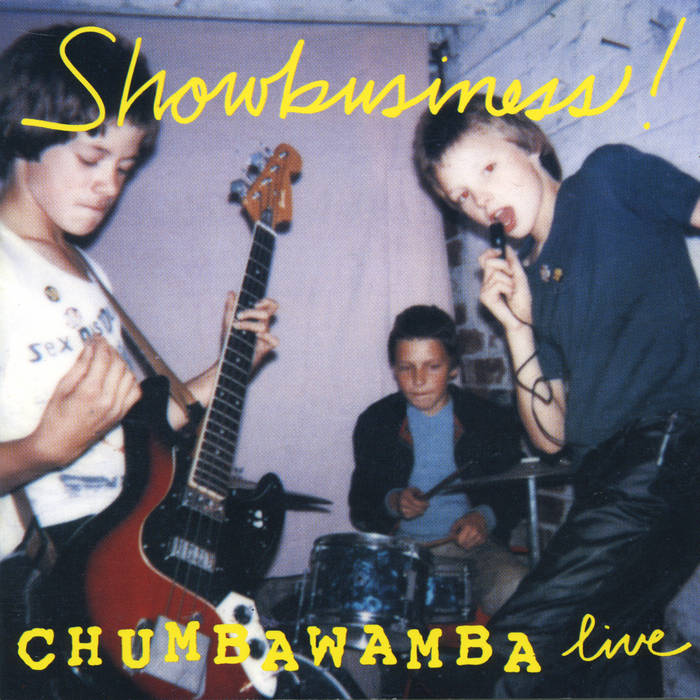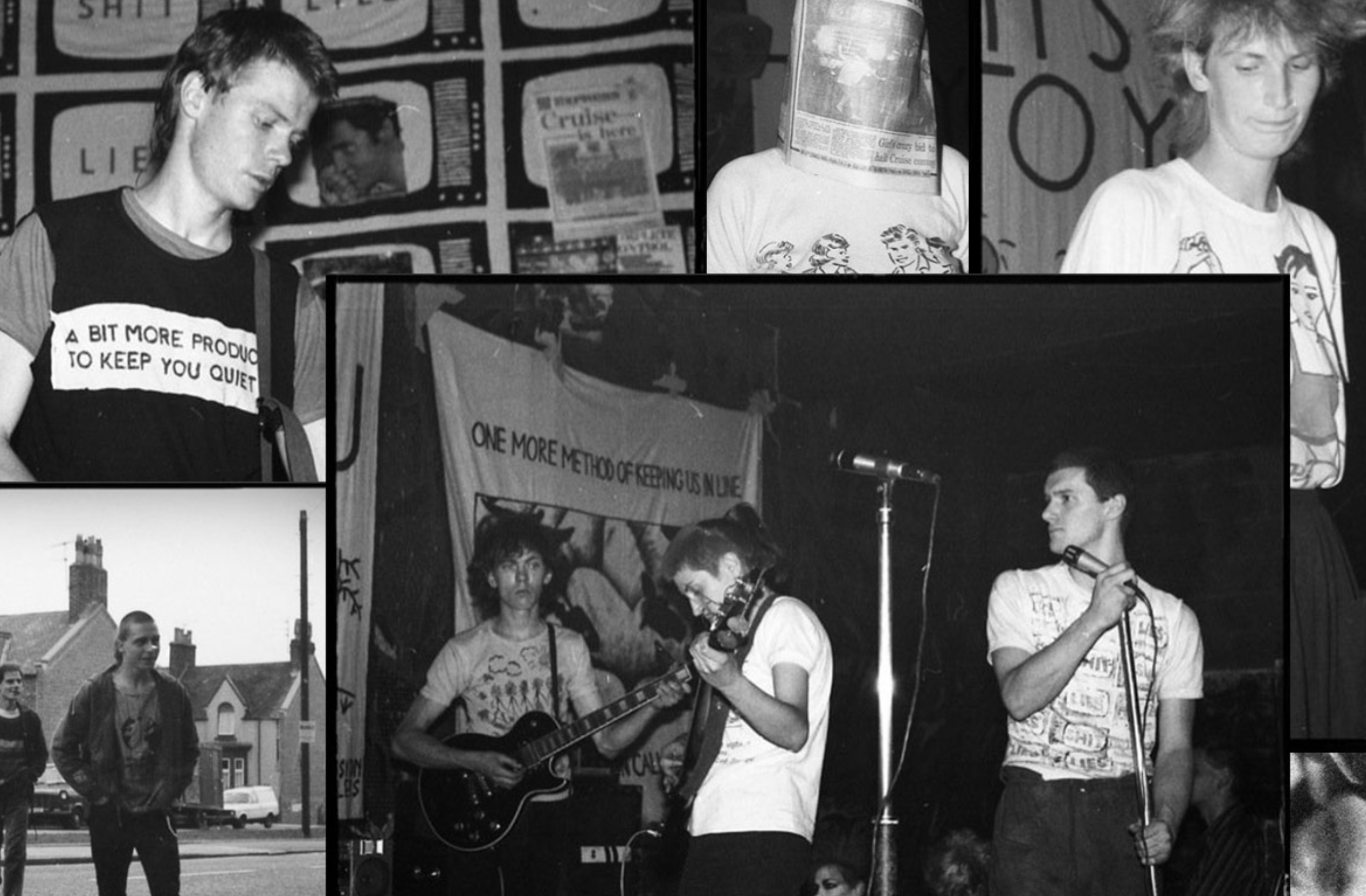By Joseph Gentile ·
Bandcamp
April 07, 2022
Chumbawamba is as punk as it GETS. No, really: Chumbawamba, the band that was on MTV and the radio every 37 seconds, the band that had the one-hit-wonder jam “tubthumping” about drinking whisky and getting knocked down, the band that was played at your junior prom, was actually rooted in anarcho-politics and wrecking the system the entire time that they enveloped pop consciousness. In fact, they had been pumping out the anarcho-punk tunes and supporting direct action measures for 15 years before their massive smash!
By blending elements of punk, folk, dance, and pop into a singular racket, they established a distinctive sound with disruptive appeal that snuck into the mainstream without anyone noticing their anarcho-punk bona fides before it was too late! And now, 2022 marks four decades since the band first began their radical mission and you can still hear “tubthumping” on the radio…and most people still don’t know about the band’s punk rock platform.
So, to mark the group’s 40th anniversary, Bandcamp spoke to Chumbawamba’s Dunstan Bruce, Danbert Nobacon, Alice Nutter, and Boff Whalley about the band’s early anarcho days.
“BEFORE THERE WAS CHUMBAWAMBA…THERE WAS CHIMP EATS BANANA!” (1979-1981)

Showbusiness (live)Chumbawamba 1. Never Do buy go to album 1 Never Do 00:10 / 00:58 2 Never Gave Up 00:10 / 00:58 3 Anarchist 00:10 / 00:58 4 Heaven/Hell 00:10 / 00:58 5 Grateful 00:10 / 00:58 6 Homophobia (Single Version) 00:10 / 00:58 7 Morality 00:10 / 00:58 8 Dog 00:10 / 00:58 9 Stitch 00:10 / 00:58 10 Mouthful 00:10 / 00:58 11 Nazi (The Day the Nazi Died (Acapella)) 00:10 / 00:58 12 Timebomb (Jimmy Echo) 00:10 / 00:58 13 Slag Aid (How to Get Your Band on Television (Part II) 00:10 / 00:58
It’s 1979. Punk rock is rippling through England. Even small towns like Burnley, Lancashire are getting wind of the new aggressive music through the local record shops and the radio. It makes sense: Burnely was hit hard by the UK economic depression since it was an old mill town. Many of the mills had been shut down, with the work sent overseas for cheaper, and less ethical, labor. The town, which used to have factories spewing out so much pollution that you couldn’t see nearby Pendle Hill due to the smoke, was now quietly eroding.
Boff Whalley (then “Allen”), nearing the end of high school, was walking down a street in Burnley to meet up with his mates. Standing there was a slightly younger guy, wearing a full-on straight jacket with the arms tied behind his back—and everything fell into place. “He was just chatting really normally…with this massive straight jacket on, all the buckles and locks and everything,” says Whalley. “I thought that was fantastic!”
The young fellow in the jacket would become Danbert Nobacon, but at the time he was just “Nigel.” Nigel, like Whalley, was into the new-ish punk scene, eating up bands like the Sex Pistols, Clash, and Undertones, as well as the more avant-garde groups like The Fall and the Monochrome Set.
Nobacon says, “My older brother’s generation was into Led Zep and prog rock. I had this fantasy, ‘Oh, I’d love to be in a band!’ But I never thought I could do it. Then, punk rock comes along: ‘Learn three chords and you’re in a band!’ It was like a revelation. It totally changed me life.” Whalley, who was born into a religious family and struggled with some of the ideologies, adds, “I’ll never forget seeing the Sex Pistols. They gave me a way out of the life I was in. When I first saw Johnny Rotten on TV, he grabbed the mic, looked at the camera, and screamed ‘get off your arrssseee!’ I thought, ‘Whatever that is, that’s what I want to do.’”






